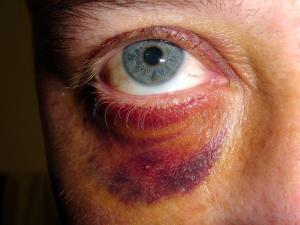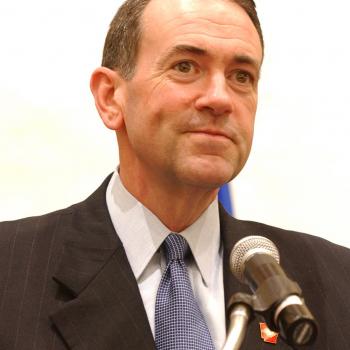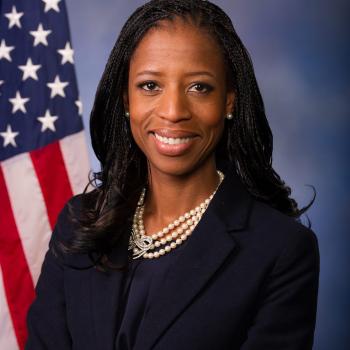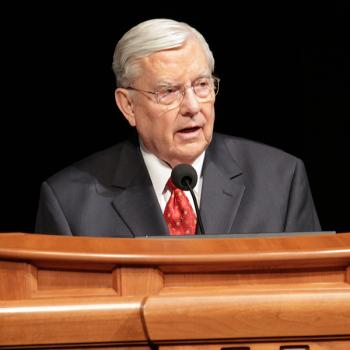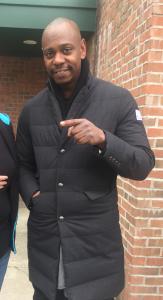
Members and administrators in the Church and its universities should ensure that, when “protecting” the Church, they aren’t actually hurting it.
In the mid-2000s, Comedy Central aired The Chappelle Show, a popular sketch comedy series. One of the show’s recurring segments, titled “When Keeping It Real Goes Wrong,” featured sketches where people would engage in aggressive behavior to “preserve” their honor or safeguard their reputations. Inevitably, their over-the-top actions would result in negative repercussions for them, like losing a job, being beaten up, or even going to prison. Basically, by being overzealous to protect their interests, the sketches’ characters ended up hurting themselves.
The Chappelle Show’s “Keeping It Real” segments are hilarious, if crude, gems in the universe of comedy. But what isn’t funny is how members or administrators in The Church of Jesus Christ of Latter-Day Saints and Church-owned institutions can display similar self-defeating behavior. Take, for example, the case of Brian Evenson. Evenson was a promising young associate professor in BYU’s English department when he published his critically acclaimed book Altmann’s Tongue. Intended as an expose of the pointlessness of violence, an overly fragile graduate student reacted negatively to its at-times gory prose and penned a letter to a General Authority accusing Evenson of “revel[ing] in darkness and degradation.” That letter eventually found its way to administrators at BYU who told Evenson that he couldn’t stay at the university if he continued to write such work. Chafing at such an infringement of his academic freedom, Evenson resigned from his position at the university and would later leave the Church. He would, however, go on to become a renowned professor at Brown University.
Evenson’s experience reminds me of that of a good friend of mine. He and a partner co-authored an investigative report for the BYU campus paper, The Daily Universe, exposing financial malfeasance by some officials in BYUSA, the student government. The basis of their article was a leaked document from a BYUSA insider, but administrators didn’t believe them. They were convinced that my friend and his cowriter had stolen the document from BYUSA through illegal means and threatened them with expulsion. Luckily, one of their professors interceded on their behalf, lauding the article as “some of the best journalism I’ve seen.” Later, my friend’s coauthor would go on to become a celebrated writer at a prominent national magazine and an outstanding example of a BYU graduate.
Moving away from BYU, I witnessed similar foot-shooting while I was attending law school in Athens, GA. One of my professors was an internationally acclaimed author of works examining the institutional causes of wealth disparities between racial groups. She also, for a time, was the “poster child” for Mormonism, with the Church using her status as a working mother, graduate of a prestigious law school, refugee from tyranny, and person of color to combat some of the stereotypes people have about the Church. Soon after moving to Athens, my professor suggested that a book club organized by members of her Relief Society read Joanna Brooks’s The Book of Mormon Girl, a relatively innocuous memoir about one woman’s journey away from, and then back into, Mormonism. News of her suggestion got around, and when she showed up at the next book club meeting, she was confronted by a hoard of people from stake leadership all-but-accusing her of heresy. She later stopped attending church.
This kind of self-defeating behavior isn’t just something to which the modern Church is witness. Joseph Smith and the city council of Nauvoo sought to protect the reputation of the Church by destroying the printing press of the anti-Mormon Nauvoo Expositor, unintentionally triggering the outcry that would lead to Smith’s assassination. During his time as an apostle, Ezra Taft Benson’s excoriation of communism, understandable given the ideology’s threat to the Church abroad, would morph into endorsements of the crazed conspiracy theories of the anti-leftist John Birch Society. Such endorsements would subject the Church to ridicule and make it harder for the Church to work with left-leaning parties to protect its interests.
Now, I’m not naïve. I know that there are people who wish the Church harm, and I believe that excommunication and similar penalties are sometimes necessary to protect the Church and its good name. But oftentimes it seems like Church members and administrators, and officials at Church universities, end up hurting rather than helping the Church in their zeal to protect it. Just think of the added acclaim BYU would have if it hadn’t condemned Evenson’s work; the prestige that BYU and the Church would have lost if my friend’s coauthor had been expelled; and the powerful testament to the diversity of Mormonism that the Church forfeited when my professor stopped attending. Also think of the other marvelous things Joseph Smith could have accomplished if his actions hadn’t precipitated his murder or the healthy two-party participation the Church could have if Ezra Taft Benson hadn’t embraced the far-right. Perhaps we in the Church should consider these counterfactuals as we seek to defend the Church in the future. Protecting the Church is good, but, to take a page out of Chappelle’s book, “Protecting the Church Can Go Wrong.”



